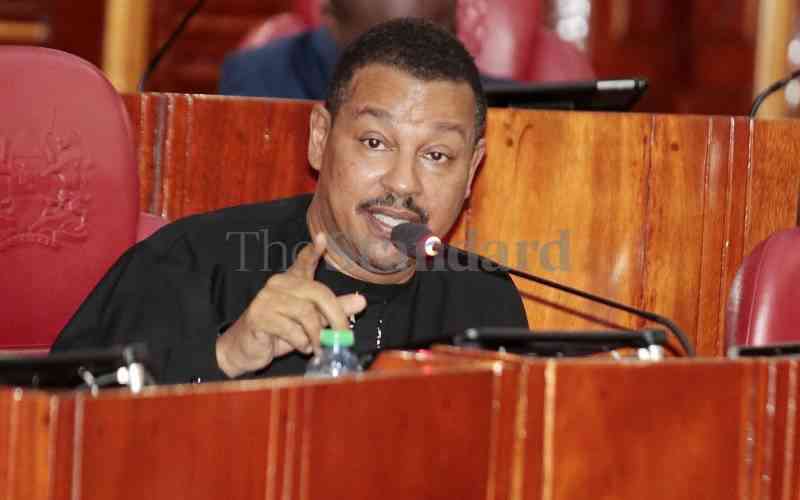Kenya: In an innovative move that is likely to rattle political rivals, the President’s party, The National Alliance (TNA), has rolled out a registration drive that targets underage children, as young as 14 years.
Architects of the elaborate plan are encouraging the children to register digitally via a given telephone code and online too. In a recently paid-up advert in one of the dailies, TNA operatives appeal to the children to submit their names and other details.
“We are building a lasting party for the future and want to establish a membership that would outlive the President. And it is from the pool of our junior membership that we hope to draw our solid voting base,” says party Secretary General, Onyango Oloo. But the move has drawn mixed reactions from political pundits, members of rival parties and educationists, who describe it as smart and futuristic, as others read a 2017 pre-rigging plot. Yet still, education officials condemn it as misuse and indoctrination of school children.
“While the Coalition for Reforms and Democracy (CORD) brigade is busy addressing rallies countrywide and getting carried away by huge crowds of supporters, some who neither have ID cards nor are registered voters, their rivals are engaged in smarter and pragmatic strategies,” observes former Cabinet minister Amukowa Anangwe.
The possibility of a rigging plot notwithstanding, Anangwe, a Political Science professor at University of Dodoma, Tanzania, says, “When you capture them at that age, they are bound to stay loyal and remain politically captive”.
Prudent thing
He adds, “The next prudent thing during an election year is to process ID cards and voters’ cards for this naive and captive lot, whether or not they have attained the voting age of 18, and utilise their numbers at the ballot”. But Chief Executive Officer of the Africa Policy Institute, Prof Peter Kagwanja, says the country is full of conspiracy theories. According to Kagwanja, the notion of rigging is misplaced considering that involvement of young people in politics is the norm in mature democratic establishments.
“I do not see anything wrong with what TNA is doing. The notion of youth leagues and party scouts is common world over and the idea of reaching out to this population is, therefore, an acclaimed and worthwhile approach of engaging non-voting members of a given party,” argues Kagwanja.
Anangwe adds, “The underage members are a crucial asset to political parties, since they are more amenable and open to manipulation. They are political virgins that party operatives crave to win over since the older citizens have become polluted.” But educationists are opposed to what they regard as misuse of the children for selfish political gain and abuse of their rights.
According to Joseph Karuga, the chairman of the Kenya Primary Schools Heads Association (Kepsha), the move is tantamount to indoctrination. “Ideally a 14-year-old is a primary school pupil. Children of that age should be left free to grow up mentally because coercing them to join a political party where they are bombarded with certain ideologies amounts to conditioning them to think in a given way,” protests Karuga.
Karuga observes that pumping unfiltered knowledge into children outside the official educational structures poses the threat of radicalising young people. His Secondary Schools counterpart, John Awiti, the chairman of Kenya Secondary Schools Heads Association (KESSHA), concurs by warning that children who are politicised pose grave danger to school administrators.
Within the law
“As educationists, our business is to operate within and conform to the law. And our firm position is that politics should be kept out of schools. The law prohibits, not just our students, from active engagement in political party activity, but teachers as well. How then can it be right for the students, who are not even of a voting age” poses Awiti.
To nurture their healthy political growth, Karuga reveals that the teaching fraternity has formed a model National Children’s Government, which was commissioned on June 16, during the African Child’s day celebrations.
“We are teaching them leadership skills and the need to have inner peace, free of political dispute and violence. They conducted free polls nationwide to elect their government officials and in the process learnt that in competitive polls there are winners and losers,” the KEPSHA boss said.
Stay informed. Subscribe to our newsletter
Maintaining that TNA’s is a strategy for efficient management, the party Secretary General says the ongoing registration also targets older members and is geared towards ensuring the party has a clean and clear record.
“We have previously faced challenges during party primaries and by-election nominations, and that is why we want digitalised records of our members so that at the touch of a button we can tell who is who and equally project our numbers,” says Oloo.
“These are the same people who will hit the 18 age mark, or beyond by 2017. TNA also plans to use contacts of its junior members to constantly disseminate and share information relevant to its ideals and political campaigns.
 The Standard Group Plc is a
multi-media organization with investments in media platforms spanning newspaper
print operations, television, radio broadcasting, digital and online services. The
Standard Group is recognized as a leading multi-media house in Kenya with a key
influence in matters of national and international interest.
The Standard Group Plc is a
multi-media organization with investments in media platforms spanning newspaper
print operations, television, radio broadcasting, digital and online services. The
Standard Group is recognized as a leading multi-media house in Kenya with a key
influence in matters of national and international interest.
 The Standard Group Plc is a
multi-media organization with investments in media platforms spanning newspaper
print operations, television, radio broadcasting, digital and online services. The
Standard Group is recognized as a leading multi-media house in Kenya with a key
influence in matters of national and international interest.
The Standard Group Plc is a
multi-media organization with investments in media platforms spanning newspaper
print operations, television, radio broadcasting, digital and online services. The
Standard Group is recognized as a leading multi-media house in Kenya with a key
influence in matters of national and international interest.







